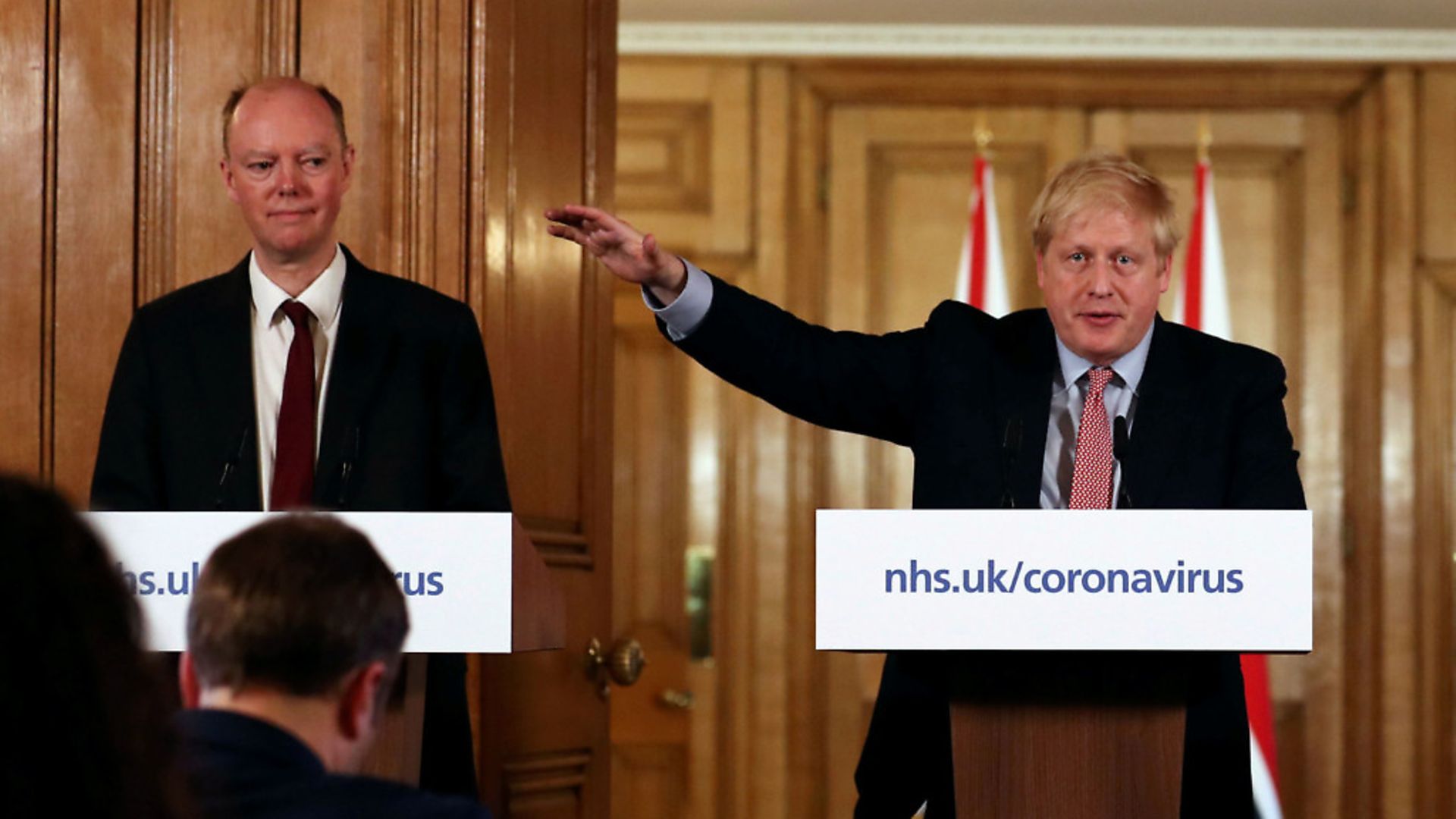
The coronavirus is likely to go down as a significant moment in our history. But how will it change our politics? ANDREW ADONIS looks at what might happen when it’s all over.
Have your say
Send your letters for publication to The New European by emailing letters@theneweuropean.co.uk and pick up an edition each Thursday for more comment and analysis. Find your nearest stockist here or subscribe to a print or digital edition for just £13. You can also join our readers' Facebook group to keep the discussion and debate going with thousands of fellow pro-Europeans.
‘We are at war,’ said president Macron on Monday before announcing lock-down and curfew measures worthy of the First and Second World Wars. And that was his point: to justify draconian measures by comparison with occasions when they had been enforced in the past and which people would understand.
However, no two wars are alike, so the dramatic language doesn’t get us very far. The historian Max Hastings made a more interesting comparison this week of coronavirus with the outbreak of plague in London in 1665, which took an appalling toll as pandemics and diseases routinely did until modern medicine got on top of most of them in the last century.
The plague, like the Great Fire a year later, resonates today through the diaries of Samuel Pepys. ‘Thence to the Coffee-house,’ wrote Pepys on May 24, 1665, ‘where I have not been for a great while, where all the news is of the plague growing upon us in this towne; and of remedies against it: some saying one thing, some another.’ ‘At least,’ says one wag, ‘the Coffee-house was open.’
Some say one thing, some another about coronavirus. Since I don’t have a clue about the science, I just follow what Professor Chris Whitty says and hope for the best. But when it comes to the aftermath of ‘wars’ – in the sense of huge seismic shocks on societies and political systems – I have studied them as an historian. And I have to report that there is no set pattern there either.
Comparing the aftermath of the First and the Second World Wars shows this starkly. After 1918 Europe descended into nationalism, autarky, austerity, slump and fascism.
After 1945, there was social democracy, internationalism, the European Union and the longest run of peace and prosperity in the history of the continent. At least, in western Europe. In eastern Europe it was a decade of Stalin, another three decades of communism, and only after that, with the collapse of the Berlin Wall in 1989, came the peace and prosperity.
Which alerts one to what really matters in the aftermath of seismic crises: leadership.
After 1945, Europe had a generation of outstanding leaders. Attlee and Churchill in Britain; Adenauer in Germany; de Gaulle in France. All working in close alliance with a United States which, from Truman and the Marshall Plan to Obama and the international response to the 2008 meltdown, was liberal, internationalist and collaborative, conscious of not repeating the mistakes of 1918 and 1938.
Where are these leaders and this world view today? Trump and Johnson are about as insular and hostile to collaborative international action as it is possible to be in modern democracies. In tandem with Xi of China, the mullahs of Iran, the thuggish rulers of the Gulf, and Putin of Russia, who has just made himself tsar for life, it has elements of a return to pre-1914 with modern industrial states in the hands of misfits and adventurers.
But there are big differences. The realm of democracy is far larger and stronger than at any time in the past. Most of Europe is now firmly democratic: before 1914, only Britain and a handful of other European states were anywhere near. The European Union has weathered Brexit stronger not weaker, and coronavirus, in the hands of pragmatic European democrats, will likely do the same when it comes to reconstruction after the virus.
It is also highly significant that in the US Trump is under pressure from the centre. In the desperate Democrat urge to get him out of the White House, the collective will is clearly to recreate Obama, not Sanders-Corbyn and lurch to the other extreme. The same happened in France when Macron was the answer to Le Pen. In Germany Merkel has continued serene, rumours of her demise, and the threat from the far right, constantly exaggerated. It now looks like the next chancellor of Germany could be a Green.
Then there are the experts. The populists said we didn’t need them. Now they can’t get enough of them.
A friend from Finland, not much up on our politics, was watching Monday’s Downing Street press conference with me and said – ‘that guy, he look like a good prime minister.’ He was pointing at Professor Whitty.









